So you want to… open a campsite?
 © Ingram Image
© Ingram Image An estimated 15.7m domestic camping and caravanning trips were made in the UK last year, making it a potentially lucrative additional income for farmers with land to spare.
So how do you go about setting up a campsite or caravan site on your farm? Find out what you need to do about:
- planning permission
- licences
- tax
- budgeting
- market research
- insurance
And find out more about glamping and read a case study on Norden Farm, which has been running a camping businesss since the early 1970s.
Planning permission
Any change of use from agriculture needs planning permission, although some small scale camping is allowed under permitted development rules.
For permanent and larger seasonal sites, full planning permission will be needed. National government guidance broadly says local authorities should support farm diversification applications including tourism.
See also: Video: So you want to… set up a livery yard?
Key considerations will be the highways and access implications, as well as the size of the site, proposed number of pitches and the visual and landscape impacts.
This last aspect will become more important where land is subject to a special designation such as a National Park, an Area of Outstanding Natural Beauty or if the site is close to an important Site of Special Scientific Interest.
Certain activities including camping can be carried out without full planning as long as they are for no more than 28 days a year.
Prior notification of this to the local planning authority under permitted development rules is still likely to be needed, however.
Also, any structural works or engineering such as hardstanding are likely to need planning permission.
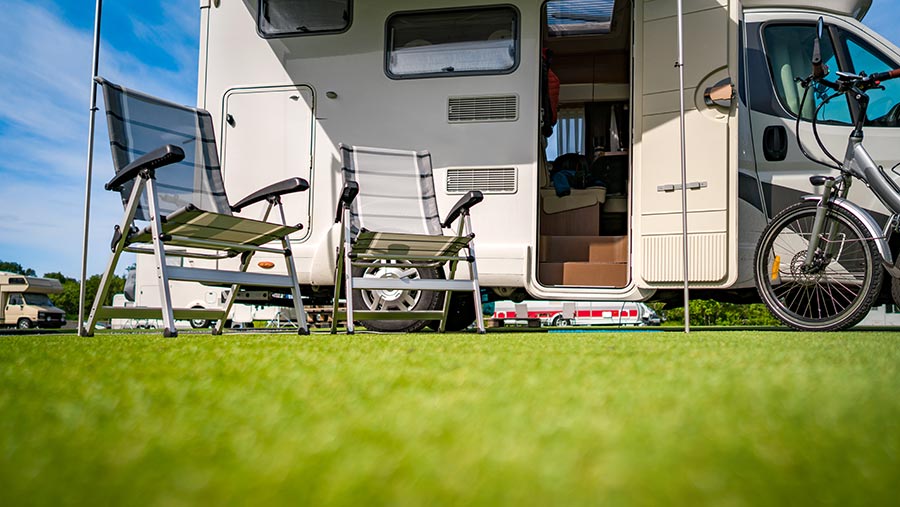
© Ingram Image
Any other permissions or licences?
Many camp sites need to be licensed by the local authority, which can set conditions about how the site should be laid out, what type of caravans are allowed and what toilet and washing facilities should be provided.
Planning permission must be in place before the licence application is made.
Also, those selling food to campers must meet legal requirements in this area too and need to register their premises with the local authority environmental health department.
Campsite owners must also provide consumers with certain information before accepting a booking, such as their pricing, payment and cancellation terms, advises diversification resource the Business Barn.
Certain equipment must be tested annually or at other intervals, for example electric hook-ups and fire extinguishers.
What about tax?
Tax considerations will be both short- and long-term. It is important to consider ownership of the business and whether it should be run as one with the farming business or separately, says Sam Kirkham, a partner with accountant Albert Goodman.
Making the camping enterprise a limited liability company or partnership may offer some protection for the core farming business assets, but this is not appropriate in all cases.
Campsites may be considered a property business for tax purposes, as may glamping although it is possible that some ventures could rather be considered as letting out holiday accommodation or a trade, says Ms Kirkham.
Classification as a property business runs the risk of the venture being treated as an investment business which could lead to important reliefs being lost.
Broadly speaking, the more services that are provided to glampers, such as cleaning, linen and meals, the more likely the business will qualify as trading.
Taking any land out of agricultural use will remove it from eligibility for Agricultural Property Relief for Inheritance Tax purposes, although Business Property Relief should apply as long as the overall business is deemed a trading business.
Business planning and budgeting
Labour will be a big cost – maintaining a site well takes a great deal of time. Planning requirements such as landscaping and specialist materials will add to the cost.
Many campsites will qualify for small business rates relief, but business rates will be an issue for large sites.
While it is relatively easy to asses where to pitch your prices, one of the most difficult things to budget for is the occupancy rate, says Andrew Troughton of land agent Carver Knowles, who advises farmers and landowners on a wide range of diversification projects.
He advises adding sensitivity in the budget to test the financial impact of different occupancy rates.
Many customers will want internet access, although improving 4G access makes this less of an issue. Where the service needs to be improved by installing a dedicated leased line, this can cost up to £9,000 a year so needs to be factored in to the budget.
Market research
Visit the competition and campsites in other areas to absorb ideas and tips where possible, say advisers.
What attracts campers to your area – what else is there for them to do and how could your site offer something extra or different?
Avoid providing too many services or facilities which could involve unnecessary investment.
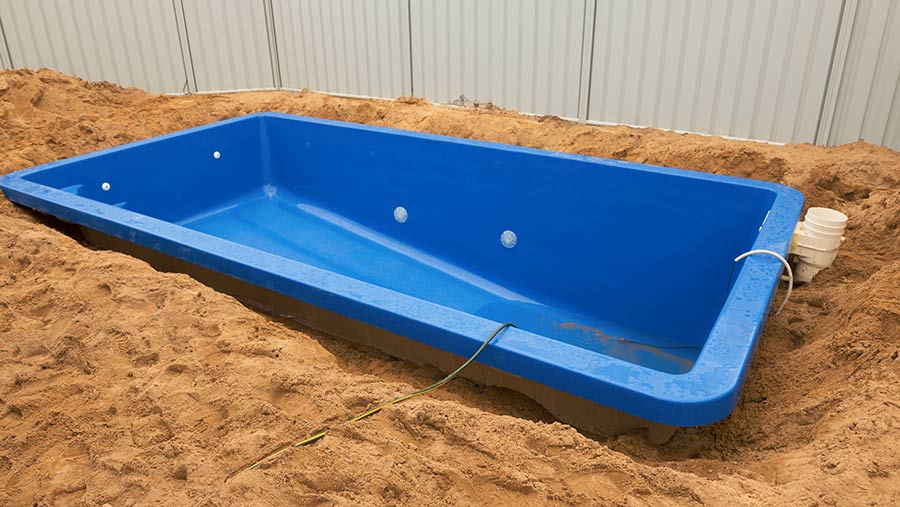
© Ingram Image
Insurance
Inform your insurer at the feasibility stage about any proposed changes in activity on the land.
Farm insurance covers you only for farming, although some policies now automatically include cover for a very small site such as the Caravan Club’s certificated sites.
Public liability will be the biggest issue – you have a duty of care to anyone on your premises, says Nigel Wellings of Acres Insurance Brokers.
In his experience, slips, trips and falls are the biggest causes of claims on campsites and glampers are more likely to make claims than other campers.
Public liability policies often provide a minimum £10m liability cover. Diversification into camping is generally viewed as a relatively low level insurance risk, unless activities such as trampolines and swimming are included.
Turnover will be one factor in determining the cost of cover, alongside an appraisal of the site and what activities, services and facilities are offered.
Adding a general campsite operation is likely to put an extra £100 to £500 a year on the cost of your public liability policy, says Mr Wellings.
“But it depends on what facilities you are offering – if you start providing food and playgrounds, you have a higher risk, so be very clear with the insurer what activities will be taking place and keep them informed as the site develops.”
Where items such as tents or pods are being offered with services such as cooking equipment and barbecues or hiring out fire pits, the risk rises and so does the cost of cover.
“It’s also a good idea to separate the farming activities from the campsite as much as possible,” says Mr Wellings.
All policies will require compliance with any relevant legislation, so a risk assessment and health and safety policies are needed for the site, as well as emergency procedures with which staff need to be familiar.
Legal liability cannot be offloaded or contracted out, so while clear signage helps, signs telling campers they are doing something at their own risk will not protect in the event of a claim.
However, a sensible set of terms and conditions should be issued to campers at the time of booking, Mr Wellings says.
Certificated sites – a way in
For those wanting to get into offering camping in a small way, certificates are issued to landowners and occupiers to run small five-pitch touring caravan and motorhome sites, and in some cases also up to 10 tent pitches.
Planning permission for these sites, known as CL sites and associated with the Caravan Club, is not usually needed unless buildings or other structures are being put up or any engineering works such as all-weather surfacing, septic tank or effluent treatment plant are planned in association with the site.
All sites offer drinking water, chemical emptying and dry rubbish disposal, while more than four in five have electric hook-ups. Many have some hardstanding pitches, toilets and showers.
Glamping option
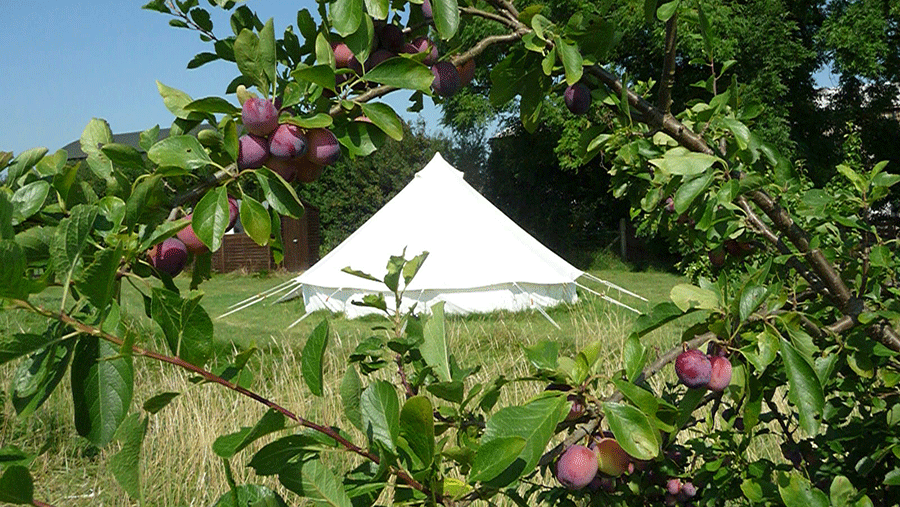
Glamping can be a relatively small-scale, low-cost entry to the camping world.
Sites tend to be small to give exclusivity – at the same time they usually need to offer something special in terms of the site and location.
Andrew Troughton of land agent Carver Knowles set up a site on his Somerset arable and sheep farm in 2014.
It has four bell tents catering for 15-20 people and many of the customers take the whole site for hen parties, reunions and family gatherings.
The site is run day-to-day by his wife Holly. “We’ve kept it very small because that suits us, it also keeps the costs down because we do the work ourselves,” says Mr Troughton.
“Initially there was some local concern about the scale of the site and traffic – that four tents would turn into 40 – but four years later there are still four tents.
“There has been some concern that the glamping thing is overdone – anyone planning such a venture has got to look at what’s on offer locally and what differentiates your site.”
Franchise glamping operations are also worth considering, some of these are well established and take out some of the risk in terms of sourcing equipment, marketing and taking bookings.
These usually take a cut of the site income and can be prescriptive about how the site operates, for example when it opens and closes and what to charge, says Mr Troughton.
Where to find more information
On caravan licence requirements – contact your local authority or read more on www.gov.uk/caravan-site-licence
Business rates
www.gov.uk/introduction-to-business-rates
Small sites
www.campingandcaravanningclub.co.uk
Case study: Norden Farm, Dorset
Norden Farm close to Corfe Castle has been hosting campers since the early 1970s when things were informal, with few facilities.
The site has grown significantly in the intervening years. During that time much has also changed on the farm.
Farm facts
Norden Farm, Corfe Castle, Dorset
- 380-acre beef and sheep farm
- 100 sucklers taking calves to nine-month stores, 50 ewes
- Open from 1 March to 31 October (weather dependent)
- 200 all grass pitches, 130 with electric hook ups
- AA four pennant site
- 20 full-time staff (including five resident wardens), five part-time staff
- Free fishing for campers
Cereals became marginal as growing costs rose on the acid clay soils. The pig enterprise has also gone, as have the battery hens, and the dairy herd.
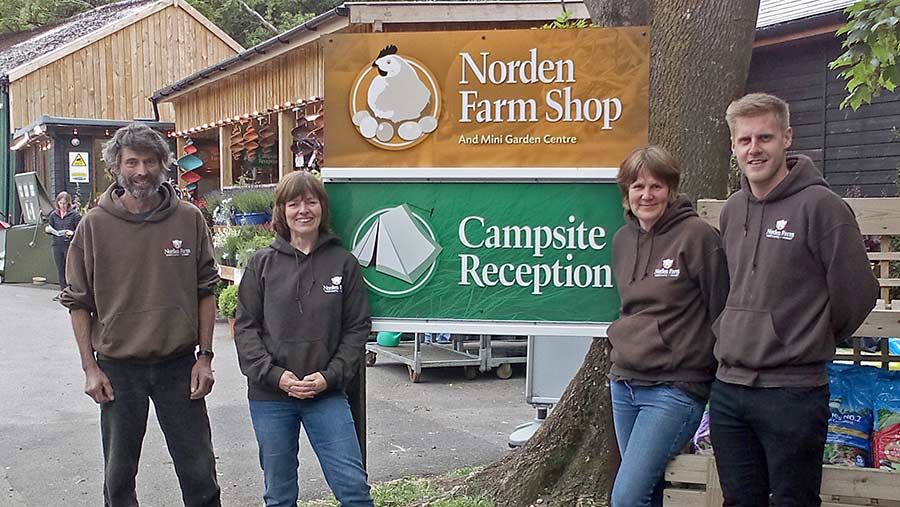
From left: Jonathan Ramm, Cindy Ramm, Kirsty Anstey and Ben Burton
“You have to make some brave decisions,” says Jonathan Ramm, one of the five partners in the business
Beef cattle and sheep are now the main farming enterprises in the five-partner business.
Four partners are family members, while Ben Barton, who joined as a teenaged part-timer helper back in 2005, is the fifth partner.
Jonathan runs the beef cattle and sheep enterprises, his older sister Cindy Ramm manages the accounts and his younger sister Kirsty Anstey manages Norden Cottage (former dairyman’s accommodation), now a small holiday let sleeping up to four people, and the farm shop.
Their mother is also a partner but not involved day-to-day in the business.
The campsite is managed by Ben who also oversees the bookings for Norden House, the original farmhouse on site which is now a holiday house sleeping up to 14.
The Ramm family began as tenants on Norden Farm in 1961 and got the chance to buy the farm from their landlord, Imerys, in 2004.
The farm’s former owner had worked part of the farm in search of clay since the 1760s, which means that certain areas of land are strictly out of bounds.
The late 1970s saw toilets and showers installed on site, with electric hook-ups added in 2000. A new facilities block was built in 2005 after the farm was purchased.
Now in a period of consolidation, improvements are made as necessary and when the returns justify it, such as the new facilities block completed in 2010. Immaculately maintained, it appears much more recent.
The very well-stocked shop was also rebuilt in 2014. Much more than a campsite shop, it offers stock feed and general supplies alongside a wide variety of food, fuel and good quality plants.
This makes it a local shop rather than simply to serve the campsite, helping to maintain sales at quieter camping times.
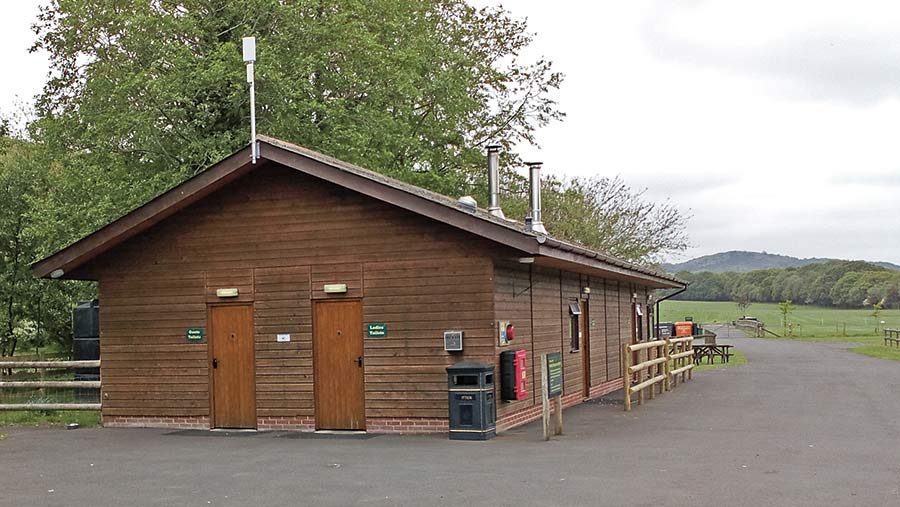
The business benefits from at least 60% of bookings being made by repeat customers. This is achieved by knowing customers well and providing exactly what they want.
“Most of our customers are looking for a traditional campsite – we are a rural, family site,” says Cindy.
“We don’t want to get too big – we’ve already got up to 1,000 people on site at peak times but it’s still got a personal feel.”
This is largely due to the family involvement, the warm welcome and relaxed atmosphere, alongside the attention to detail in camp maintenance. “It takes a lot of effort to make the site look as it does,” says Ben.
“We’re fairly relaxed, but we have terms and conditions which we use if we need to. We also accept some groups, which many campsites don’t.”
Organised entertainment or activities such as a swimming pool are not part of the offering at Norden Farm although local bands are booked to play once a week in the high season.
More people are coming to the area but they now have more options, says Ben.
“There’s definitely more competition and there are a lot of 28-day places opening.” These sites do not need full planning permission and operate under permitted development rules, so have lower costs than permanent sites.
The working farm aspect is important and until the dairy herd was sold in 2010, the cows were walked up the main access yard leading to the campsite.
Changes over the years include the way business comes to the site, with more booking in advance and less casual trade, says the family.
The site’s Facebook page links the farm with its customers and the local community. Marketing is relatively low key, with advertising on a couple of the national camping and caravanning websites which is very good value says Ben, at as little as £200 a year.
Top tips from Norden Farm
- Be organised
- It’s hard work – you are beholden to the public and it can be a 24-hour job – you can’t just shut the gate
- Getting the right staff is critical
- People will produce more rubbish than you expect – be prepared to deal with lots of it
- There will be emergencies such as illness on site – have a plan for these
- Power supply can be an issue in cold weather when demand from campers increases
- Address any complaints or bad reviews quickly
